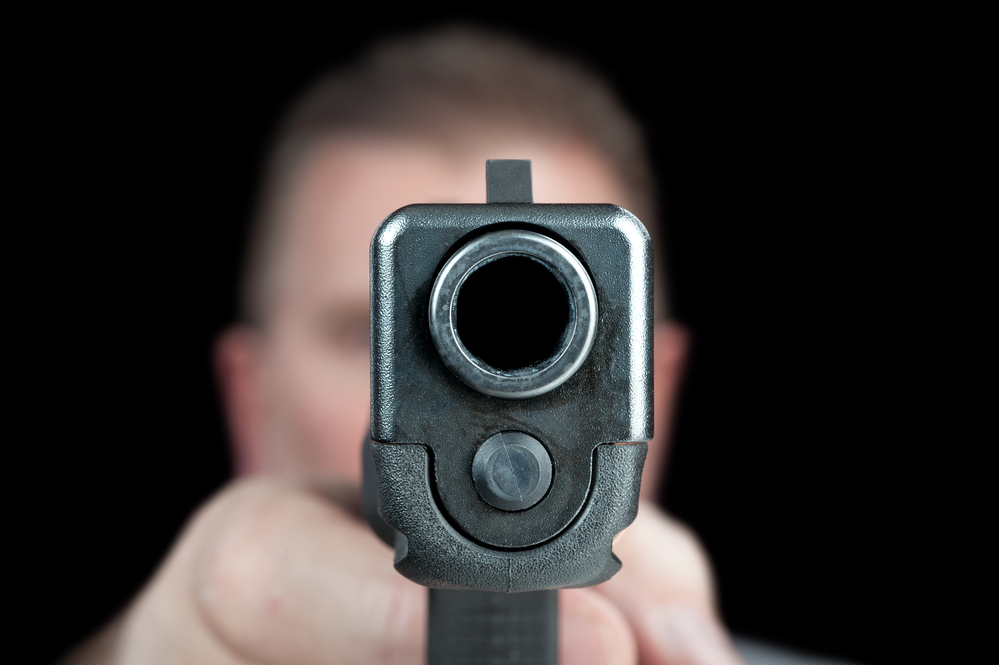Texas is a state where many people feel the need to carry handguns in certain situations, and the law recognizes their right to do so. Texas has a lot of open spaces (such as long stretches of isolated highways and country roads) where a firearm may be useful, especially for self-protection. But, it also has a great deal of urban areas located in large and even small towns that are even less safe than the “great outdoors,” which is when many law-abiding citizens may want to protect themselves and their families.
It’s usually not against the law to carry a handgun or club inside a property that you own and control, which includes motor vehicles and various types of watercraft. Law enforcement officers, court officials, and other people who have appropriate licenses can legally carry a firearm in places other than inside their own “premises” if it involves certain circumstances. Texas has strict laws with regard to the possession and use of a weapon, and violating them can lead to serious charges (which can result in your right to own a firearm being revoked).

Illegal Weapons in the State of Texas
While many people think that the weapons laws in Texas only involve firearms, there are many types of weapons that are considered illegal (except in certain cases). These can include any of the following:
- Machine guns.
- Rifles with barrels that are less than 16 inches long.
- Shotguns with barrels that are less than 18 inches long.
- Explosives (such as grenades and bombs).
- Switchblade knives.
- Brass knuckles.
- Improvised handguns (also called “zip guns”).
If you have been arrested and charged with the possession of any of these weapons, the penalties for a conviction can be serious. You can also be charged with some other weapons offense (such as “unlawful discharge of a weapon” or “unlawful carrying of a weapon”). Having a switchblade or a set of brass knuckles in your possession is considered a Class A Misdemeanor, which can result in up to one year in jail and a fine of up to $4,000. Having any other illegal weapon is a third-degree felony, which can include 2-10 years in prison and a fine of up to $10,000. If you’re facing weapons charges in the State of Texas, you should get the help of a qualified attorney.
Laws Regarding the Carrying of a Weapon in the State of Texas
It’s usually considered illegal to carry on your person or in any type of vehicle (including a boat) a “handgun, illegal knife, or club” that’s “in plain view” if you’re not on a property that you own or control. Here are the specific weapons laws in Texas related to their possession:
- You intentionally, knowingly, or recklessly carry a firearm on or around your person.
- You intentionally, knowingly, or recklessly carry a firearm inside a motor vehicle or watercraft that you own or are in control at any time.
- You intentionally, knowingly, or recklessly carry a firearm while you’re engaged in criminal activity (other than a Class C Misdemeanor) or are involved in a street gang (as defined by the Texas Penal Code Section 71.01).
The weapons laws in Texas exempt many people in a number of circumstances, which can include:
- Law enforcement officers.
- Court officials.
- Certain members of the military.
- People who are traveling.
- Hunters and fishermen.
- Security officers.
- People with a handgun license.
- People with a permit to serve alcoholic beverages.
- Security guards in certain schools (who are allowed to carry a nightstick or similar club).
- Animal control officers (in certain circumstances).
- People engaged in various types of historical reenactment.
People with the proper license are allowed to carry concealed handguns. Because of the recent “open carry law,” people with the license to do so can openly carry a firearm on their shoulder or belt holster. If you don’t have a “License to Carry” (LTC), you’re not allowed to “intentionally display” a handgun in plain view of someone else in any of the following circumstances:
- You’re in a public place (unless the gun is in a holster).
- You’re at an institution of higher learning (even if it’s in a holster).
Even with an open carry license, certain places are considered “off limits” in the State of Texas. Some of them can include but may not be limited to:
- Any institution of higher learning where carrying handguns are prohibited.
- Any licensed area that gets more than 50% of its income from the sale of alcohol.
- Prisons and jails.
- Churches.
- Amusement parks.
- Certain government meeting areas.
It’s illegal to carry any type of weapon while you’re intoxicated. If you’re convicted of any weapons charge (whether it’s a misdemeanor or felony offense), you could have your handgun license suspended. If you have been charged with the unlawful carrying of a weapon (even if you have a license), be sure to get in touch with Gale Law Group. We’re a criminal defense lawyer in Corpus Christi who will fight for you, and we would be happy to speak with you!
